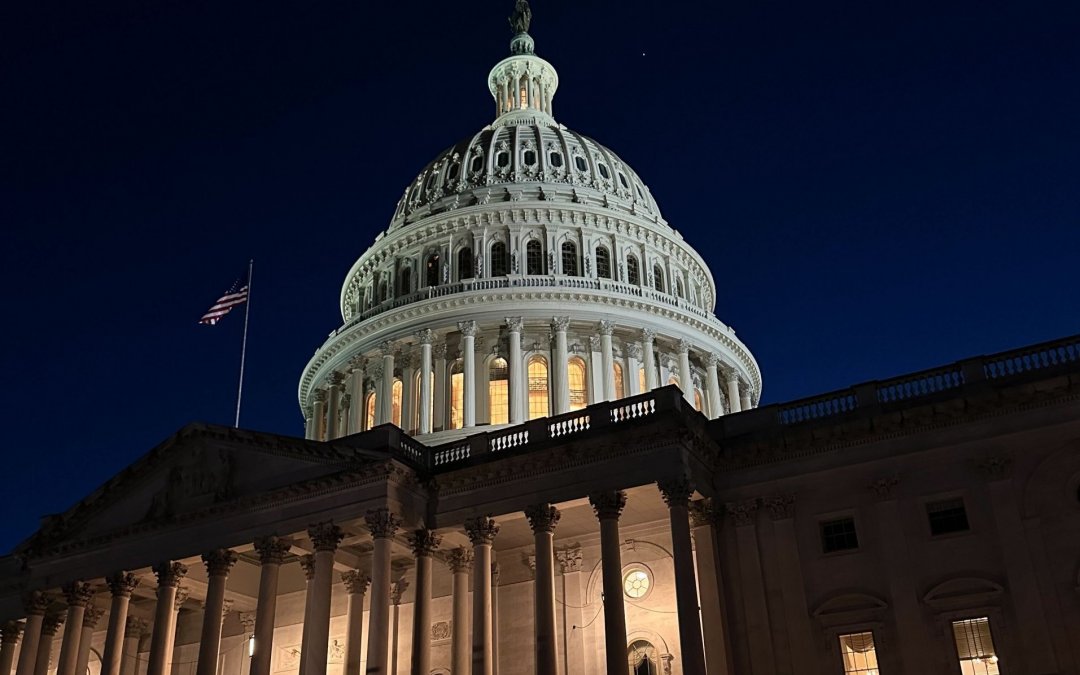WASHINGTON — Five days after discovering their 16-year-old son Daniel Puerta unresponsive in bed, Jaime Puerta and his wife decided to discontinue life support as they stood beside him in the Los Angeles Children’s Hospital. Puerta kissed his son’s nose one last time.
Daniel, who had no history of substance abuse, is one of countless stories tragically connected to the nation’s opioid crisis. Over the past decade, synthetic opioids have claimed over 450,000 American lives, and left millions more struggling with addiction.
Five years after his son’s death, Puerta recounted the tragedy before the Senate Judiciary Committee in February, explaining that his son took half a counterfeit pill that was, unbeknownst to him, laced with illegally manufactured fentanyl.
“My son had consumed what he thought was a blue M30 Oxycodone pill, but in fact, had unknowingly, I repeat, unknowingly, ingested an illicitly manufactured counterfeit opioid,” said Puerta, co-founder of the nonprofit VOID, which educates students nationwide on the dangers of drugs, at the hearing.
Now, in an effort to address the public health crisis, the Senate recently passed the HALT Fentanyl Act in an 84-16 vote. A similar version previously passed in the House of Representatives, and the White House has expressed support as well.
However, experts question whether the bill truly addresses the roots of the epidemic, for two main reasons. For one, the bill focuses on increasing penalties for fentanyl-related substances, a version of the drug that’s far less prevalent than fentanyl itself. Plus, the critics say the bill extends the punitive approach of the War on Drugs without addressing systemic factors driving the crisis.
Fentanyl-related substances (FRS) are drugs with a slightly different chemical structure but comparable effects to fentanyl. The bill permanently classifies all of them as Schedule I substances and imposes a 10-year mandatory minimum sentence for anyone in possession of 100 or more grams of FRS. According to the Drug Enforcement Administration (DEA), drugs in that category, like heroin and marijuana, have “a high potential for abuse and no currently accepted medical use.”
FRS have been classified as Schedule I since 2018, with Congress continually extending the designation through 2025. The proposed legislation makes it a permanent status.
Puerta said that the HALT Fentanyl Act is long overdue. He supports the bill because he believes it will prevent illegal manufacturers from exploiting loopholes and evading prosecution.
“We don’t want any other parents to have to be in our same shoes. And what we’re trying to do is provide law enforcement with the necessary tools that they need so that they can go after these large drug trafficking organizations,” he said in a recent interview with STAT.
Supporters say that the bill’s approach to combating fentanyl-related substances is necessary to tackle the crisis.
“We are losing thousands of lives every single year across our country to fentanyl overdoses. This is one more tool to be able to combat that,” said Sen. Martin Heinrich (D-N.M.), a key sponsor of the bill.
Sen. Chuck Grassley (R-Iowa), the chairman of the Senate Judiciary Committee, where the bill was introduced, called it a “critical step towards ending the crisis that’s killing hundreds of thousands of precious American lives.”
The opioid crisis has evolved from the widespread misuse of prescription painkillers to heroin, and as law enforcement cracked down on heroin, illicit markets shifted toward fentanyl, which is cheaper and far more potent.
However, the difference between fentanyl-related substances and illegally manufactured fentanyl, or IMF, raises doubts among experts about the bill’s effectiveness. IMF is fentanyl itself – produced in unregulated, illegal labs and often mixed into street drugs. The Centers for Disease Control and Prevention reported approximately 72,000 deaths involving IMF in 2023, accounting for roughly 70% of all U.S. overdose deaths. IMF is not considered a fentanyl-related substance (FRS) and is already outlawed under the Controlled Substances Act.
The HALT Fentanyl Act is “not a helpful response because it’s not talking about the primary driver of the crisis,” said Travis Rieder, director of the Master of Bioethics program at the Johns Hopkins Berman Institute of Bioethics.
“The thing that is killing people right now when it comes to drug overdose is that there is fentanyl – not fentanyl analogs – illegally manufactured, unregulated fentanyl in the streets,” he said.
Rieder said that this bill goes after drugs like carfentanil, a highly potent analog used to care for large animals, “which is not a big problem on the street.” The CDC reported 210 carfentanil-related deaths, accounting for approximately 0.2% of total overdose deaths in 2023.
At February’s committee hearing on the bill, Sen. John Cornyn (R-Texas) said that the bill would help curb a sharp rise in deaths tied to carfentanil.
Additionally, Rieder said the HALT Fentanyl Act’s 10-year mandatory minimum sentencing could hurt individuals struggling with addiction.
“Doubling down on criminalization and law enforcement penalties isn’t the solution to the drug crisis,” Rieder said. “Addiction is defined as continuing to use substances despite negative consequences. Threatening jail time won’t stop people from using drugs – it will just put them in jail after they continue using. This is a harm-expanding philosophy, not a harm-reducing one.”
Susan Thau, a public policy consultant for the Community Anti-Drug Coalitions of America, said the legislation is “one piece of the puzzle” intended to target high-level traffickers who manufacture and sell fentanyl-related substances, not individuals struggling with addiction.
Patrick Royal, spokesperson for the National Sheriffs’ Association, which strongly backed the measure, said it provides law enforcement with the tools to target major traffickers.
He conceded that the War on Drugs has not always been effective but said that classifying fentanyl-related substances as Schedule I would better align criminal penalties with the dangers.
Sen. Cory Booker (D-N.J.) was one of the few lawmakers to vote against the bill in the Senate. He said he opposed it because it is overly focused on using law enforcement to combat the opioid crisis.
“Criminalization alone cannot stem the crisis of overdose deaths. We need to prevent overdoses before they happen, but this bill does nothing to curb demand, stem the flow or emergence of new drugs, or help people free themselves from the darkness of addiction,” he said in a statement.
Daniel Landsman, vice president of policy for Families Against Mandatory Minimums, criticized the legislation’s “familiar sledgehammer approach to a problem that needs a holistic and informed solution.”
He’s concerned about mandatory minimums, which link sentencing solely to drug quantity while ignoring context and individual circumstances. He warned that applying these penalties to all fentanyl-related substances is risky, as many remain untested, making a one-size-fits-all approach unjust.
Maritza Perez Medina, director of federal affairs at the Drug Policy Alliance, has tracked this bill since 2018.
She said the legislation is concerning because “it’s never how we’ve done drug policy in this country.”
She said that typically, analogs undergo scientific and medical evaluations, but this process is being bypassed, treating them all as equally harmful, even though a small molecular change could make some “therapeutic.”
Rieder said he believes the proper way to address the fentanyl crisis is investing time and money into addiction treatment services.
“We have several million people addicted to various drugs, so we need addiction medicine and treatment infrastructure many times larger than our current one, requiring immense training we haven’t invested in,” he said.
Daniel’s father, Jamie Puerta said he thinks that comprehensive action like reducing drug demand, expanding addiction treatment, and launching national awareness campaigns, as well as holding countries accountable are all important to combatting the crisis.
“Anytime I hear of a new death, it’s a gut punch. It’s like, ‘Okay, I’m not doing enough,’” he said. “There’s a lot more that needs to be done.”


